
February 2019
AAVMC Announces 2019 Professional Excellence and Service Awards Honorees
The AAVMC has announced the recipients of six awards that recognize professional excellence, achievement and service in academic veterinary medicine. The awards will be officially presented during the AAVMC’s 2019 Annual Conference and Iverson Bell Symposium, which will be held March 8-10, 2019 at the Hyatt Regency Washington on Capitol Hill in Washington, D.C.
“The AAVMC is proud to recognize these outstanding educators and researchers,” said AAVMC Chief Executive Officer Dr. Andrew T. Maccabe. “Their commitment to professional excellence and service is elevating academic veterinary medicine and inspiring others throughout our profession. We look forward to publicly honoring them for their achievements during our 2019 annual conference.”
The honorees are:
- Dr. Gayle B. Brown, Iowa State University College of Veterinary Medicine, 2018 AAVMC Distinguished Teacher Award, presented by Zoetis.
- Dr. Guy Palmer, Washington State University (WSU) College of Veterinary Medicine, 2019 AAVMC Excellence in Research Award.
- Dr. Gerald W. Parker, Jr., Texas A&M University (TAMU) College of Veterinary Medicine and Biomedical Sciences, 2019 Senator John Melcher, DVM Leadership in Public Policy Award.
- Dr. Kenita S. Rogers,Texas A&M University College of Veterinary Medicine and Biomedical Sciences, 2019 Iverson Bell Award.
- Dr. Elizabeth Strand, University of Tennessee College of Veterinary Medicine, 2019 AAVMC Billy E. Hooper Award for Distinguished Service.
The AAVMC also recognizes a promising student during the biennial Iverson Bell Symposium, the oldest symposium devoted to promoting diversity and inclusion in academic veterinary medicine. This year, the Patricia M. Lowrie Diversity Leadership Scholarship has been awarded to India Napier, a class of 2020 veterinary medical student at the Cummings School of Veterinary Medicine at Tufts University.
The AAVMC Distinguished Teacher Award, presented by Zoetis, is considered one of the most prestigious teaching awards in international academic veterinary medicine. It recognizes excellence in professional veterinary medical education and is presented to an educator whose sustained record of teaching excellence and ability, dedication, character and leadership has contributed significantly to the advancement of the profession.
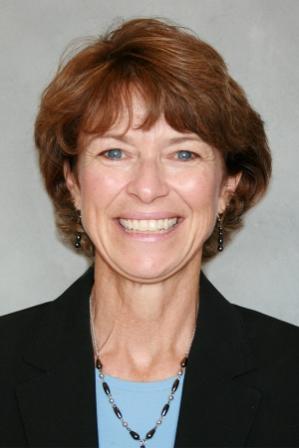 Dr. Brown teaches classes that include microbiology, immunology and emerging and exotic diseases. She has been a veterinary specialist at Iowa State’s Center for Food Security and Public Health since 2002, where she is responsible for the ground-breaking Exotic Diseases of Animals/Initial Accreditation Training (EEDA/IAT) course. That course is used in some form by all veterinary medical colleges in the United States. She believes in using evidence-based teaching approaches to help students invest in basic science education and love learning, even when tackling challenging courses.
Dr. Brown teaches classes that include microbiology, immunology and emerging and exotic diseases. She has been a veterinary specialist at Iowa State’s Center for Food Security and Public Health since 2002, where she is responsible for the ground-breaking Exotic Diseases of Animals/Initial Accreditation Training (EEDA/IAT) course. That course is used in some form by all veterinary medical colleges in the United States. She believes in using evidence-based teaching approaches to help students invest in basic science education and love learning, even when tackling challenging courses.
The AAVMC Excellence in Research Award designates the outstanding veterinary medical researcher of the year, as selected by a committee of peers. The AAVMC Board of Directors established the annual research award in 2010 to recognize outstanding research and scholarly achievements in the field of veterinary medicine. It recognizes an individual who, over the course of his or her career, has demonstrated excellence in original research, leadership in the scientific community, and mentoring of trainees and colleagues in any discipline of veterinary medicine.
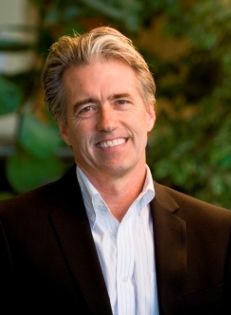
He is the founding director of WSU’s Paul G. Allen School for Global Health and leads global health programs in Africa and Central America. He directed the National Institutes of Health (NIH) Training Program in Infectious Diseases from 2003-2018 and currently holds a NIH MERIT award for research on pathogen emergence. He holds a joint appointment at the Nelson Mandela African Institution of Science and Technology and directs the Bill & Melinda Gates Foundation-supported Integrated PhD Program between WSU and the Nelson Mandela African Institution of Science and Technology.
Dr. Palmer was elected to the National Academy of Medicine in 2006. He serves on the Board on Global Health at the National Academies and chairs the Global Health, Infectious Diseases and Microbiology Group in the Institute of Medicine.
The Senator John Melcher, DVM Leadership in Public Policy Award, established in 2007, is presented to current or former faculty, staff, or students at an AAVMC member institution to recognize leadership in public policy that advances veterinary medical education and success in advocating for veterinary medical education on a national or international scale.
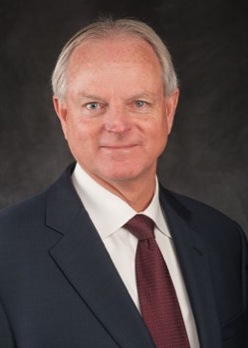 Dr. Parker is Texas A&M’s campus director for Global One Health and associate dean for Global One Health at the veterinary college. Dr. Parker has had a long and distinguished career of service to veterinary medicine, the U.S. military, and the U.S. government. He has become an essential resource and well-respected leader in Washington, D.C. on matters pertaining to biodefense, high consequence emerging infectious diseases, global health security, and all-hazards public health and medical preparedness.
Dr. Parker is Texas A&M’s campus director for Global One Health and associate dean for Global One Health at the veterinary college. Dr. Parker has had a long and distinguished career of service to veterinary medicine, the U.S. military, and the U.S. government. He has become an essential resource and well-respected leader in Washington, D.C. on matters pertaining to biodefense, high consequence emerging infectious diseases, global health security, and all-hazards public health and medical preparedness.
As a nominee of the NIH, Dr. Parker was recently asked to serve on the National Science Advisory Board for Biosecurity (NSABB). Soon afterwards, he was asked by the NIH NSABB Executive Secretariat to serve as its chair. The NSABB is an external advisory board for the Director of the NIH, Secretary of Health and Human Services and the U.S. government inter-agency on biosecurity policy matters affecting the scientific community and national security.
The Iverson Bell Award is presented biennially in recognition of outstanding leadership and contributions in promoting opportunities for under-represented minorities in veterinary medical education.
 Dr. Rogers is TAMU’s associate dean for professional programs. Her accomplishments include developing memoranda of agreements (MOAs) with four Texas A&M University System schools for pipeline recruitment, including one historically black university and two Hispanic-serving institutions. She has infused the school’s curriculum with multiple diversity initiatives, including a mandatory class on cultural competency for second-year students and adding diversity awareness and cultural competency as required core competencies at the college. Her efforts also led to the veterinary college being awarded the Higher Education Excellence in Diversity (HEED) Award for Diversity in Health Professions.
Dr. Rogers is TAMU’s associate dean for professional programs. Her accomplishments include developing memoranda of agreements (MOAs) with four Texas A&M University System schools for pipeline recruitment, including one historically black university and two Hispanic-serving institutions. She has infused the school’s curriculum with multiple diversity initiatives, including a mandatory class on cultural competency for second-year students and adding diversity awareness and cultural competency as required core competencies at the college. Her efforts also led to the veterinary college being awarded the Higher Education Excellence in Diversity (HEED) Award for Diversity in Health Professions.
The AAVMC Billy E. Hooper Award for Distinguished Service is presented by the AAVMC to an individual whose leadership and vision has made a significant contribution to academic veterinary medicine and the veterinary profession.
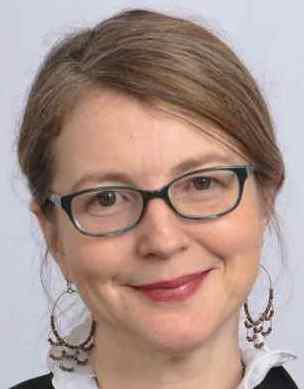 Dr. Strand is the “All Creatures Great and Small” Endowed Clinical Associate Professor
at the University of Tennessee Colleges of Social Work and Veterinary
Medicine. She is also the founding director of the Veterinary Social Work (VSW) program. Through Dr. Strand’s leadership and vision, VSW is the first program in the United States to define veterinary social work as a sub-specialty, based on both scholarly literature and first-hand experience of the human needs that exist in animal-related settings. In 2010, she introduced a new VSW Certificate Program for students enrolled in the UT Social Work graduate program. Her curriculum provides students with a comprehensive foundation in veterinary social work focusing on the knowledge and skills needed to integrate animals into social work practice in ethically sound ways and in keeping with the values of the social work profession. She also teaches UT’s veterinary teams how to manage compassion fatigue and stress and recently launched S.A.V.E. (Suicide Awareness in Veterinary Education) to educate veterinary professionals and students about mental health issues and to raise awareness about available resources.
Dr. Strand is the “All Creatures Great and Small” Endowed Clinical Associate Professor
at the University of Tennessee Colleges of Social Work and Veterinary
Medicine. She is also the founding director of the Veterinary Social Work (VSW) program. Through Dr. Strand’s leadership and vision, VSW is the first program in the United States to define veterinary social work as a sub-specialty, based on both scholarly literature and first-hand experience of the human needs that exist in animal-related settings. In 2010, she introduced a new VSW Certificate Program for students enrolled in the UT Social Work graduate program. Her curriculum provides students with a comprehensive foundation in veterinary social work focusing on the knowledge and skills needed to integrate animals into social work practice in ethically sound ways and in keeping with the values of the social work profession. She also teaches UT’s veterinary teams how to manage compassion fatigue and stress and recently launched S.A.V.E. (Suicide Awareness in Veterinary Education) to educate veterinary professionals and students about mental health issues and to raise awareness about available resources.
 India Napier, the Patricia M. Lowrie Diversity Leadership Scholarship awardee, is involved in many leadership activities, including service as co-president for the class of 2020 and working to build a cohesive, collaborative environment for her classmates. She is the student chair of the Tufts Veterinary Council on Diversity and is dedicated to increasing minority student applicant numbers through direct outreach. She was also instrumental in facilitating Tufts’ participation in the This is How We ‘Role’ outreach program, which is designed to teach veterinary medicine-based lessons to young children from underrepresented groups and encourage them to pursue veterinary medicine as a profession.
India Napier, the Patricia M. Lowrie Diversity Leadership Scholarship awardee, is involved in many leadership activities, including service as co-president for the class of 2020 and working to build a cohesive, collaborative environment for her classmates. She is the student chair of the Tufts Veterinary Council on Diversity and is dedicated to increasing minority student applicant numbers through direct outreach. She was also instrumental in facilitating Tufts’ participation in the This is How We ‘Role’ outreach program, which is designed to teach veterinary medicine-based lessons to young children from underrepresented groups and encourage them to pursue veterinary medicine as a profession.
CBVE Program Developing, Making Impact
The AAVMC Competency-Based Veterinary Education (CBVE) Working Group has been continuing their efforts to support the implementation of CBVE, according to CBVE Co-Leader Dr. Laura Molgaard, associate dean for academic affairs at the University of Minnesota College of Veterinary Medicine.
Earlier this fall, Molgaard made a presentation on CBVE at the International Conference on Residency Education in Halifax, Nova Scotia, a human medical education conference with a strong focus on competency-based education.
The CBVE Working Group met on November 13-14, 2018 in Denver, Colorado to refine the CBVE Milestones, discuss future “train-the-trainer” workshops for veterinary educators, and share early reactions of clinicians involved in a field test focused on using Entrustable Professional Activities (EPAs) to support workplace-based assessment. Dr. Eric Holmboe, Senior Vice President, Milestones Development and Evaluation, Accreditation Council for Graduate medical Education (ACGME), shared lessons learned from human medical education during the onsite meeting.
Next steps for the CBVE Working Group include the presentation of a webinar for Academic Affairs Committee members on the CBVE Milestones scheduled for January 22, 2019. Following the webinar, a survey will be shared with colleges and schools of veterinary medicine to collect detailed feedback and comments designed to inform edits to the CBVE Milestones document in development.
“We are really excited to learn more about how schools might use the milestones,” said Dr. Kristin Chaney of the Texas A&M University College of Veterinary Medicine and Biomedical Sciences, a member of the CBVE Milestones sub-group leading this effort. “We know from human medical education that they can be useful in creating a shared mental model for faculty and students to support workplace-based assessment as well as curriculum development.”
Additional ongoing CBVE initiatives include the preparation and submission of two manuscripts to describe the process, outcomes and context of the creation of the CBVE Competency Framework and CBVE Core EPAs, both of which were released at the 2018 AAVMC Annual Conference in Washington.
The CBVE Working Group will be presenting updates on these initiatives and other ongoing CBVE projects during the Academic Affairs Committee meeting at the 2019 AAVMC Annual Conference. A summer symposium is also in the planning stages and will be announced soon.
The CBVE working group, co-led by Dr. Molgaard, and Dr. Jennie Hodgson, associate dean for professional programs at the Virginia-Maryland College of Veterinary Medicine, has been working on the CBVE program for the past several years. For more information on the webinar, please contact molga001@umn.edu or jennieh@vt.edu
Maccabe Assumes Presidency of Health Professions Education Association
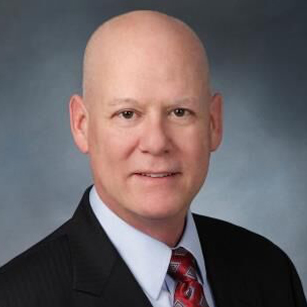 AAVMC Chief Executive Officer Dr. Andrew T. Maccabe assumed the presidency of the Federation of Associations of Schools of the Health Professions (FASHP) in January 2019. and will serve a two-year term. He has formerly served as Secretary/Treasurer and President-elect.
AAVMC Chief Executive Officer Dr. Andrew T. Maccabe assumed the presidency of the Federation of Associations of Schools of the Health Professions (FASHP) in January 2019. and will serve a two-year term. He has formerly served as Secretary/Treasurer and President-elect.
Founded in Washington, D.C. in 1968 and now in its 50th year, FASHP includes 14 associations that represent all of the major health professions.
“I’m excited and honored by this opportunity to serve,” said Maccabe. “Our member organizations are the custodians of the health professions. We recruit and train new generations of healthcare professionals. We work together to improve health professions education. And we speak with one voice when we are addressing common issues and advocating for constructive change.”
FASHP encourages networking among its constituent members in both formal and informal ways. The CEOs, COOs, directors of governmental relations and other staff meet on a regular basis. Periodic networking events and interprofessional exchanges are held as well, according to Maccabe.
FASHP also advocates for positions that bolster the nation’s healthcare workforce, programs that help ensure the availability of high quality healthcare services for all, federal financial aid support for professional students studying in healthcare disciplines and other areas important to the nation’s healthcare system.
FASHP has some interesting historic links to academic veterinary medicine. In fact, according to organizational research conducted as part of the AAVMC’s 50th anniversary, FASHP was founded by a leader from academic veterinary medicine.
Dr. W. W. Armistead, one of the early leaders of the AAVMC, is credited with starting the organization. Armistead served as dean of colleges of veterinary medicine based at Michigan State University, Texas A&M University and The University of Tennessee. He was also one of the early advocates for helping the AAVMC establish a voice in Washington.
Annual Conference Preparations Continue

Preparations continue for the 2019 AAVMC Annual Meeting and Iverson Bell Symposium March 8-10, 2019 at the Hyatt Regency Washington on Capitol Hill in Washington, D.C.
Themed “The Science of Building Inclusive Teams,” the conference will focus on strategies for building diverse and inclusive teams in the work and learning environments, which have been shown to promote more effective group decision-making and organizational development.
Hundreds of thought-leaders from academic veterinary medicine and officials from the veterinary medical profession are expected to gather for the three-day forum.
The Iverson Bell Symposium, held biennially in conjunction with the annual meeting, is the oldest symposium dedicated to promoting ethnic, gender, and racial diversity in the veterinary medical profession.
Two widely respected experts in higher education and organizational dynamics will present remarks during plenary sessions. Leading social scientist and author Scott Page and higher education expert Scott Jaschik, editor of Inside Higher Ed, will each address the conference.
Dozens of other presentations will also be presented by leading experts from academic veterinary medical institutions located around the world.
Recipients of a series of prestigious awards that recognize performance and achievement will also be recognized during the conference. Honorees will include the winner of the Iverson Bell Award, the Pat Lowrie Diversity Leadership Scholarship, and winners of several other awards in teaching, research and public service.
Registration is now open for the conference. For more information, contact Leslie Wilson at lwilson@aavmc.org.
AVMA-AAVMC Joint Committee Convenes in Washington
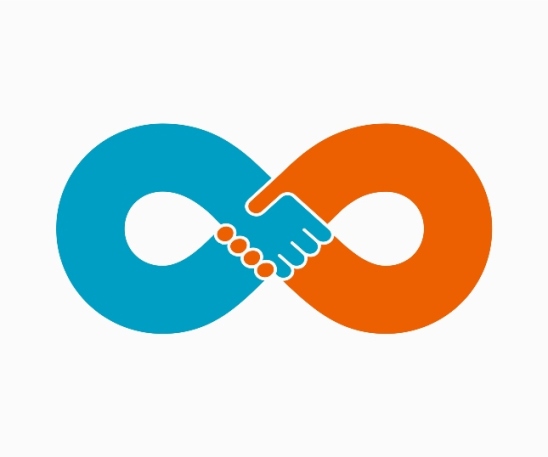 Leaders from the AVMA and AAVMC gathered in Washington, D.C. for the semi-annual Joint Committee Meeting on December 11, 2018.
Leaders from the AVMA and AAVMC gathered in Washington, D.C. for the semi-annual Joint Committee Meeting on December 11, 2018.
Following organizational updates from AAVMC President Dr. Calvin
Johnson, AVMA President Dr. John De Jong, the group journeyed through an
agenda that included a series of current issues and initiatives.
Agenda items included accreditation logistics and support, educational
debt, health and wellbeing, advocacy on Capitol Hill, leadership
development, diversity and inclusion and the Veterinary Futures
Commission. Discussions were also held in the area of student
recruitment and the 2020 National Veterinary Scholars Symposium.
“These joint committee meetings play an instrumental role in fostering
an extremely important relationship,” said AAVMC Chief Executive Officer
Andrew T. Maccabe. “From the Council on Education to the Veterinary
Futures Commission, our spirit of active collaboration is
strengthening the profession in many different ways.”
Designed to foster collaboration and synergy between the AVMA and the
AAVMC, the meetings have been held since the founding years of the
association. In recent years, they have become more structured and
formalized.
Maccabe Addresses Tokyo Veterinary Medical Conference
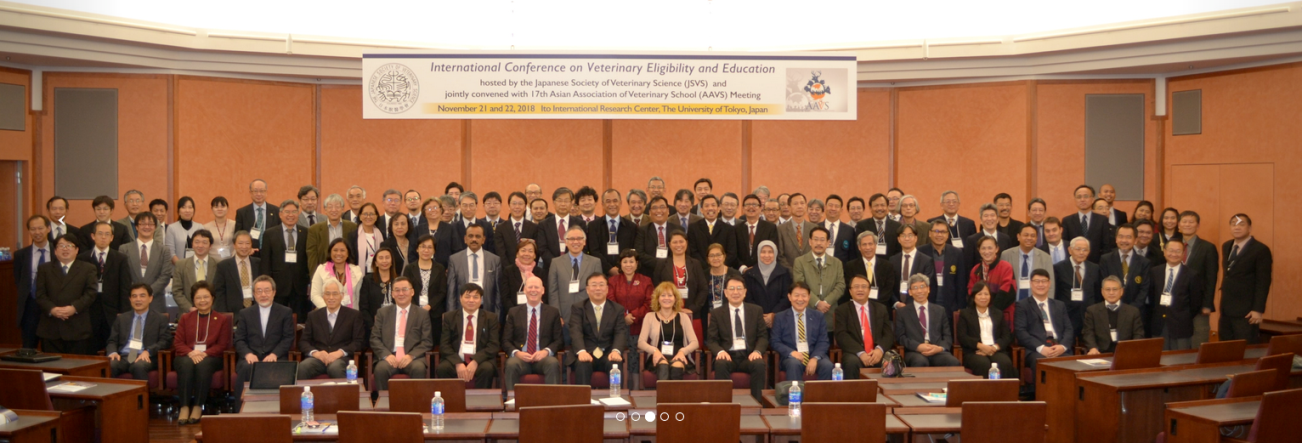 AAVMC Chief Executive Officer Dr. Andrew T. Maccabe recently made a keynote presentation during the 17th Asian Association of Veterinary Schools (AAVS) at the University of Tokyo in Tokyo, Japan. The meeting was hosted by the Japanese Society of Veterinary Science.
AAVMC Chief Executive Officer Dr. Andrew T. Maccabe recently made a keynote presentation during the 17th Asian Association of Veterinary Schools (AAVS) at the University of Tokyo in Tokyo, Japan. The meeting was hosted by the Japanese Society of Veterinary Science.
During one of the opening presentations of the conference, Maccabe discussed “The Future of Veterinary Medical Education: How Should We Prepare Today’s Students for Tomorrow’s Challenges?”
Maccabe’s presentation took a forward-thinking look at some of the technological, social and economic forces shaping the profession and the educational system that supports it. After presenting an overview of the AAVMC, he discussed the social contract with which the veterinary medical profession is entrusted to protect societal wellbeing and the nature and importance of professionalism and accreditation.
He examined some of the ways advancements in computing, genetics, nanotechnology, robotics and artificial intelligence have already shaped healthcare and invited the audience to consider what lies ahead given the exponentially increasing rate of technological change.
He discussed the growing role of the human/animal bond, the future of food production, explored some of the changes that might lie ahead in teaching and learning and higher education, and highlighted the importance of diversity and inclusion in organizational performance.
He concluded by discussing the importance of competency-based training and assessment in professional education as well as the critical role diversity plays in creating better organizational outcomes.
He also observed that veterinary medicine is a global public resource that can help increase global food security and decrease poverty and improve livestock health.
He concluded by highlighting the role of professional accreditation in protecting and promoting standards of quality, outlined some of the international bodies engaged in that activity, and suggested how global recognition of accreditation systems could improve veterinary education worldwide.
Maccabe’s talk was presented during a section of the program focused on “What are International Veterinarians and What is Necessary for the Training of International Veterinarians?”
Veterinary Futures Commission meets in Washington
 The Veterinary Futures Commission held its third meeting December 17-18, 2018 in Washington, where members explored topics including food, healthcare, companionship, security, teaching and learning, culture and research.
The Veterinary Futures Commission held its third meeting December 17-18, 2018 in Washington, where members explored topics including food, healthcare, companionship, security, teaching and learning, culture and research.
Established by the AVMA and the AAVMC, the Veterinary Futures Commission is a semi-autonomous “visioning body” formed to evaluate challenges and opportunities in the veterinary profession’s present and future operating environments.
Focused on helping the profession best meet societal needs, the group will formulate evidence-based policy and program recommendations for AAVMC and AVMA leaders to consider following a series of meetings.
The group held its first meeting last April in College Station, Texas, and its second last summer in Schaumburg, Illinois. The final meeting is expected to focus on advocacy.
During the meeting, the group began to hone in on the scope and content of its final report to the AVMA and the AAVMC.
Nomination Period Opens for AAVMC Communications, Fundraising Awards
 Nominations
are now being accepted for two AAVMC Awards that recognize excellence
in institutional advancement among AAVMC members. The AAVMC’s Communications Excellence Award, first presented in 2013, recognizes the important role communication plays in advancing academic veterinary medicine. The AAVMC Excellence in Scholarship Fundraising Award,
which will be presented for the first time in 2019, is designed to
inspire and recognize professional excellence and achievement in
fundraising for DVM student scholarships. Each award includes a $1,000
honorarium and professional recognition.
Nominations
are now being accepted for two AAVMC Awards that recognize excellence
in institutional advancement among AAVMC members. The AAVMC’s Communications Excellence Award, first presented in 2013, recognizes the important role communication plays in advancing academic veterinary medicine. The AAVMC Excellence in Scholarship Fundraising Award,
which will be presented for the first time in 2019, is designed to
inspire and recognize professional excellence and achievement in
fundraising for DVM student scholarships. Each award includes a $1,000
honorarium and professional recognition.
NIAMRRE Delegation Meets With NIFA, AHI Officials on AMR
 In early December, representatives from the National Institute of Antimicrobial Resistance Research and Education (NIAMRRE) met with a series of Washington D.C. officials and agencies on Anti-Microbial Resistance (AMR).
In early December, representatives from the National Institute of Antimicrobial Resistance Research and Education (NIAMRRE) met with a series of Washington D.C. officials and agencies on Anti-Microbial Resistance (AMR).
Led by NIAMRRE Executive Director Dr. Paul Plummer, the delegation also included AAVMC Governmental Affairs Director Kevin Cain, APLU Senior Associate Director Eddie Gouge, Iowa State University Director of Federal Relations Director Sophia Magill and University of Nebraska Federal Relations coordinator Jacob Dowd.
The group held meetings with J. Scott Angle, Director of the National Institute of Food and Agriculture (NIFA) and officials with the Animal Health Institute (AHI), an influential interest and advocacy group comprised of major pharmaceutical corporations.
The purpose of the meetings was to foster relationships and seek assistance in supporting NIAMRRE’s work in addressing the AMR problem. One key area of interest is to develop more federal funding for work addressing the AMR problem in agricultural animals.
Medical scientists understand that over-prescription and patient non-compliance in the human sector as well as the use of antimicrobials in animal agriculture each play a role in the AMR problem. But many believe federal funding is disproportionately devoted to supporting AMR work in the human health arena.
NIAMRRE was founded as a result of a multi-year collaboration on the AMR problem undertaken by the AAVMC and the APLU.
Evidence-Based Interprofessional Professionalism Assessment Tool Profiled in new Journal Article
 The Interprofessional Professionalism Collaborative (the AAVMC is a member) has recently announced the publication of its landmark article, “The Intersection of Professionalism and Interprofessional Care: Development and Initial Testing of the Interprofessional Professionalism Assessment (IPA).” The article is now available on Taylor & Francis Online and will be published in an upcoming issue of the Journal of Interprofessional Care.
The Interprofessional Professionalism Collaborative (the AAVMC is a member) has recently announced the publication of its landmark article, “The Intersection of Professionalism and Interprofessional Care: Development and Initial Testing of the Interprofessional Professionalism Assessment (IPA).” The article is now available on Taylor & Francis Online and will be published in an upcoming issue of the Journal of Interprofessional Care.
“The ability of health care practitioners to demonstrate interprofessional professionalism is essential to the delivery of quality care to patients, families, communities, and society,” said Dr. Jody Frost, IPC Facilitator and an education consultant who worked with the AAVMC on the CBVE program. “As profiled in the Journal of Interprofessional Care, the new psychometrically sound assessment instrument developed by IPC can be applied in both academic and practice settings to cultivate environments that promote interprofessional professionalism and collaborative care models.”
In addition to the new journal article, the IPC has also created an online tool kit that includes the IPA Instrument, case scenario videos, an on-demand webinar, and related materials. To access these resources, visit interprofessionalprofessionalism.org.
Dr. John Tegzes, director of Interprofessional Education and professor of toxicology at the Western University of the Health Sciences’ College of Veterinary Medicine, serves as the AAVMC representative to this committee and working group.
The IPC conducts monthly meetings online, and one face-to-face meeting annually. In addition, there are several working sub-groups that also meet monthly. Dr. Tegzes chairs the Toolkit sub-group, and WesternU has been funding his work on the IPC for the past five years. In 2015, WesternU hosted the annual IPC meeting.
Since 2006, the IPC has developed, piloted, validated, and published a tool called the Interprofessional Professionalism Assessment (IPA). It is a tool that is designed to be used in clinical settings with clinical preceptors and students across the health professions, including veterinary medicine. WesternU was a pilot site for veterinary students and preceptors with the tool. The development of the IPA has been documented in the professional literature throughout the process, with the latest publication in late 2018.
Here are three pertinent journal articles:
Frost J, Hammer D, Nunez L, Adams J, et al. The intersection of professionalism and interprofessional care: development and initial testing of the interprofessional professionalism assessment (IPA). Journal of Interprofessional Care. 2018,1-15.
Hammer D, Anderson M, Brunson D, Grus C, et al. Defining and Measuring Construct of Interprofessional Professionalism. Journal of Allied Health. Summer 2012; 41(2):e49-e53.
Holtman M, Frost J, Hammer D, McGuinn K, Nunez L. Interprofessional professionalism: Linking professionalism and interprofessional care. Journal of Interprofessional Care. 2011, 25:383-385.
During the past year, the IPC has been involved with the dissemination phase of the project, and members have presented the work at national conferences across the health professions. Dr. Tegzes presented the work as a representative of the AAVMC at four national and international conferences in 2017 and 2018. He also submitted a proposal to present the work at the AAVMC Annual Conference in 2019.
More information can be found at interprofessionalprofessionalism.org.
In the News
South Dakota State Aims to Admit Veterinary Students in 2021
VIN News Service
Colleges Collaborate to Advance Veterinary Teaching
Veterinary Practice News
‘Virus Hunters’ Identify Common European Birds as Hosts of Deadly Asian Disease
The Telegraph
AVMA and Industry Groups Work to Fight Suicide Among Veterinarians
Veterinary Practice News
Bacteria Aids Anti-Cancer Drug Delivery
Technology Networks
WTAMU Announces Two New Facilities for Veterinary Education
Amarillo Globe-News
Texas A&M Veterinary Team Deploys to Northern California to Help Pets Displaced by Fire
Eagle.com
Mosquitoes Spread Viruses Faster Than Thought
BEEF Magazine
Research Focuses On MS Biomarker
Lakeshore Public Radio
Animals Living in Large Groups Have More Parasites but are Less Likely to Suffer From Infections
MedicalNewser.com
Lyme Disease: The Threat Is Growing
American Veterinarian
Pets Burned in California’s Camp Fire Find Relief in Fish-Skin Treatments
WYMT
CSI Veterinarian Helps Investigate Animal Crimes
Today’s Veterinary Practice
Boston Researchers Find Link Between Dog-Human Antibiotic Resistance
WCVB-5
Veterinary Schools Receive Grants to Treat Cancer in Dogs
Today’s Veterinary Practice
Where Will the Next Form of Flavivirus Infection Come From?
Health Europa
Bulldogs’ Screw Tails Linked To Human Genetic Disease
Science Blog
Survey: What U.S. Veterinarians Know About Medical Marijuana
Today’s Veterinary Practice
A Life Lesson in Veterinary Care
Veterinary Practice News
From Our Members
Partnership Between MSU, EMCC Opens Door for Future Medical Researchers
Mississippi State
Cornell’s Cure Helps Little Buddy the Reindeer Celebrate Holidays in Full Health
Cornell
Indiana’s Animal Shelters are Less Crowded, Thanks to 100,000 Miles Logged by a Mobile Spay and Neuter Clinic
Purdue
Changing Lives One Research Project at a Time
Oklahoma State
3-D Printing Being Used in Veterinary Education at LMU
Lincoln Memorial
Deadly Marburg Virus Found in Sierra Leone Bats
UC Davis
Regenerative Laser Therapy Proves Beneficial for Equine Athletes at Cornell Ruffian Equine Specialists
Cornell
Rover’s Regurgitation: Veterinarian-Cardiologist Teamwork Could Speed Device Innovation, Training
Colorado State
People in Motion
Dr. Margaret (Peggy) C. Barr has been named Associate Dean for Academic Affairs at the Western University of Health Sciences.




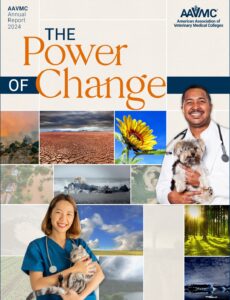
SHARE